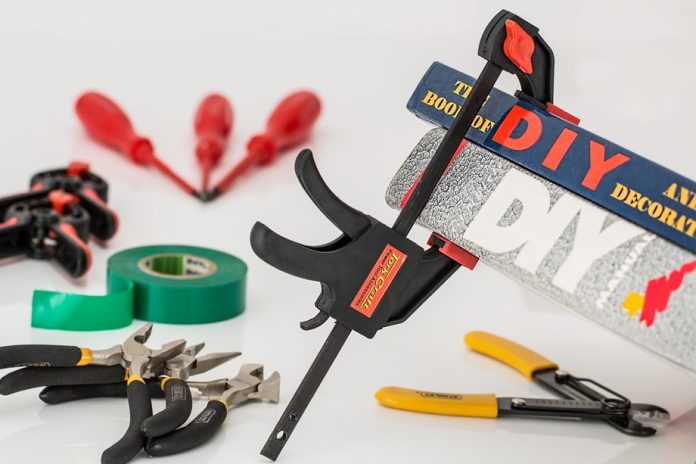In an era of Do It Yourself enthusiasts and YouTube tutorials for almost everything, it’s tempting to tackle appliance repair tasks on your own. Fixing appliances yourself might seem like a cost-effective and satisfying endeavor, but it often leads to more problems than solutions. This article will explore the problems that can be caused by DIY appliance repair and offer some tips on how to avoid them.
1. Safety Hazards
One of the most significant concerns when it comes to DIY appliance repair is safety. Home appliances, such as refrigerators, ovens, and washing machines, are powered by electricity or gas. Mishandling these appliances can result in electrical shocks, gas leaks, fires, or other hazardous situations.
Safety Tip:
- Educate Yourself: Before attempting any appliance repair, educate yourself about the specific safety precautions for the appliance you are working on. Always turn off the power source or gas supply before starting any repair work.
2. Inadequate Knowledge and Experience
Appliances are complex machines with intricate components. Attempting to fix them without the necessary knowledge and experience can lead to further damage. Misdiagnosing the issue or using incorrect replacement parts can exacerbate the problem and result in more expensive repairs down the road.
Experience Matters:
- Seek Professional Help: If you’re not well-versed in appliance repair, it’s often best to consult a professional technician. They have the expertise and tools required to diagnose and fix the problem correctly. Living in Ontario province, you may contact appliance repair in Toronto, who can help you install, fix, and maintain your home appliances. You may call or leave a request on a site.
3. Voiding Warranties
Many appliances come with warranties that cover repairs and replacements for a certain period. Attempting DIY repairs on a still-warrant appliance can void the warranty. This means that if a more significant issue arises later, you may be left with no coverage for repairs or replacements.
Warranty Consideration:
- Read the Warranty: Before attempting any DIY repairs, review your appliance’s warranty terms and conditions. If the appliance is under warranty, contact the manufacturer or authorized service provider for repairs.
4. Time and Frustration
DIY appliance repairs often take much longer than anticipated, especially if you’re not experienced in the field. The frustration that comes with troubleshooting and the potential for multiple trips to the hardware store can quickly sour the DIY experience.
Time-Saving Tip:
- Evaluate Your Skills: Consider whether your skills and time are better spent elsewhere. Maybe, it is better to delegate your work to someone else.
5. Additional Costs
One of the biggest misconceptions about DIY appliance repair is that it’s a cost-effective solution. However, if you make mistakes or cause further damage, you may end up spending more money on repairs than if you had hired a professional from the start.
Cost-Effective Approach:
- Compare Costs: Before embarking on a DIY repair project, obtain quotes from professional technicians. You might be surprised at how reasonable their rates are, especially when compared to potential DIY mishaps.
Professional expertise
As was said before, sometimes it would be better not to use your own efforts for appliance fixing. Calling a professional for appliance fixes is often the most reliable and efficient option. Professionals are trained, experienced, and equipped with the necessary tools to handle a variety of malfunctions or damages. They have a deep understanding of the components and systems within various appliances, enabling them to identify and fix a wide range of issues. Additionally, professional repair services typically offer warranties on their work, giving you extra peace of mind. Although it may be tempting to save money with a DIY fix, hiring a professional can prevent potential damage and save you from the cost of replacement down the line. Professional help ensures your appliance is repaired properly and safely.
Conclusion
Pros and Cons of Do-it-Yourself Fixing
|
Pros of DIY repair |
Cons of DIY repair |
|
1. Sense of accomplishment. |
1. Safety hazards. |
|
2. Cost savings for minor repairs. |
2. Risk of further damage. |
|
3. Convenience if you have the skills. |
3. Voiding warranties. |
|
|
4. Time-consuming. |
|
|
5. Potential additional costs. |
As you can see, the pros that DIY fixing brings to you are less than the cons. Maybe, all these benefits you would receive from repairing on your own do not cost so much inconvenience?
While DIY appliance repair can be satisfying and cost-effective for minor issues, it’s essential to recognize the potential problems it may cause. Safety hazards, lack of expertise, warranty concerns, time constraints, and additional costs are all factors to consider. Before picking up that screwdriver, weigh the pros and cons and seriously assess your skills. In many cases, the best course of action is to leave appliance repairs to the professionals who can ensure a safe and effective solution.
(Devdiscourse’s journalists were not involved in the production of this article. The facts and opinions appearing in the article do not reflect the views of Devdiscourse and Devdiscourse does not claim any responsibility for the same.)
www.devdiscourse.com
https://www.devdiscourse.com/article/lifestyle/2601906-the-pitfalls-of-diy-appliance-repair-common-problems-and-how-to-avoid-them















